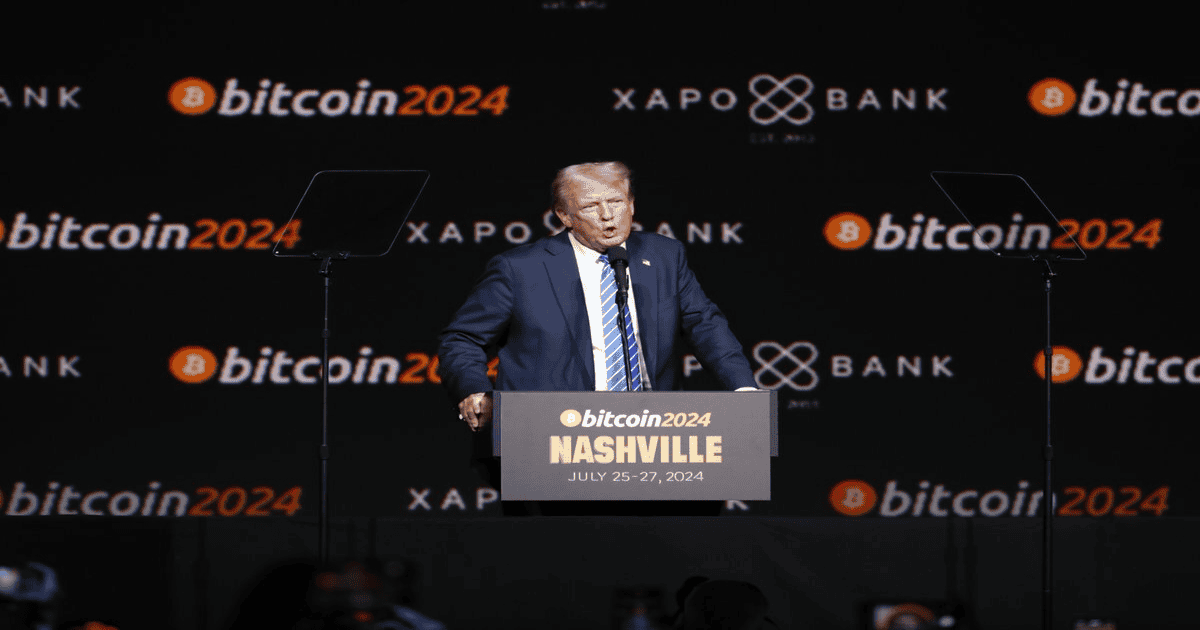U.S. Government Makes History: GDP Data Now Living on Bitcoin Blockchain

The U.S. government, through its Commerce Department, has initiated a groundbreaking move by officially publishing gross domestic product (GDP) data on public blockchains. This significant development, reported by Bloomberg, integrates blockchain technology into the core of America’s economic reporting. The data is now accessible on nine distinct networks, including prominent ones like Bitcoin, Ethereum, and Solana, marking a pivotal moment for the legitimization of decentralized technologies within federal operations.
Commerce officials have clarified that this blockchain rollout serves as 'another avenue' for data distribution, not a replacement for traditional economic data releases. However, the symbolic weight of this initiative is substantial, effectively placing the government's official endorsement on a technology that was once met with considerable skepticism in Washington. Mike Cahill, CEO of Douro Labs, confirmed his two-month collaboration with the Commerce Department on this project, stating that with this announcement, government data now resides on blockchains, enabling market participants to engage in real-time.
The blockchain initiative involves posting cryptographic hashes of GDP data, which function as digital fingerprints to ensure the information's integrity and authenticity. This critical functionality is powered by Chainlink, a prominent 'oracle' provider, which facilitates the direct publishing of data onto blockchain networks. Following this announcement, the price of the LINK token saw a surge of more than 6%, as Chainlink highlighted this collaboration as a 'key milestone' for government adoption of blockchain technology. Chainlink's robust technology is also leveraged by other major entities such as SWIFT, BNY Mellon, BlackRock, Visa, and Mastercard.
This move represents a sharp departure from previous administrations. Commerce Secretary Howard Lutnick spearheaded the project, directly informing President Donald Trump that statistics would be issued via blockchain, recognizing him as 'the crypto president.' This stands in stark contrast to the prior administration under former President Joe Biden, which maintained a cautious stance toward cryptocurrency, often clashing with exchanges and imposing restrictions on digital assets.
President Trump has rapidly moved to integrate Bitcoin into government policy since taking office. His administration has established a U.S. Bitcoin reserve, accumulated other digital assets like Ether and Solana, enacted legislation regulating stablecoins, and appointed crypto-friendly regulators who subsequently ended enforcement actions against companies like Coinbase. Beyond official policy, Trump's family has also expanded its involvement in the digital asset space, backing ventures such as World Liberty Financial. The growing political influence of the crypto industry is evident, with firms making substantial donations to Trump's reelection campaign and contributing over $133 million to super PACs supporting pro-crypto candidates in 2024, as reported by OpenSecrets.
The Commerce Department is not alone in exploring crypto technology; other government agencies are also experimenting. The Department of Homeland Security has considered blockchain for enhancing airport passenger screening, while California’s DMV has digitized car titles using crypto technology, according to Bloomberg. As for the current economic landscape, the U.S. economy recently expanded by a stronger-than-expected 3.3% in the second quarter, with consumption increasing by 1.6%. This marks the best quarter since Q3 2023, revised up from an initial 3%. Economist Heather Long noted that despite the 'relatively hot economic data,' the Federal Reserve is still widely anticipated to implement rate cuts next month.
In conclusion, President Trump's positioning as the 'crypto president' and the adoption of blockchain for GDP distribution signal a profound transformation in U.S. economic policy. This initiative further solidifies Bitcoin's emerging role as a powerful political and financial force within Washington.
Recommended Articles
Groundbreaking: US Government Stamps Official GDP Data onto Bitcoin and Solana Blockchains

The U.S. Commerce Department has begun publishing GDP data on public blockchains, including Bitcoin and Ethereum, markin...
Michael Saylor's Bitcoin Prophecies: From Tarantino Allusions to Fiat Collapse Warnings

Michael Saylor, co-founder of Strategy, continues his staunch Bitcoin advocacy through various creative campaigns, inclu...
US Government Makes History, Publishes GDP Data on Bitcoin Blockchain

The U.S. Commerce Department has begun publishing GDP data on public blockchains, including Bitcoin and Ethereum, signal...
Groundbreaking: US Government Stamps Historic GDP Data onto Bitcoin Blockchain!

The U.S. Commerce Department has begun publishing GDP data on public blockchains like Bitcoin and Ethereum, marking a si...
U.S. Government Uploads GDP Data to Blockchain in Historic First

The U.S. Commerce Department has begun publishing GDP data on public blockchains, including Bitcoin and Ethereum, markin...
You may also like...
Boxing World Mourns Joe Bugner: Legend Dies at 75

The boxing world mourns the passing of Joe Bugner at 75, a legendary British-Australian heavyweight champion known for f...
Super Falcons Seize 10th WAFCON Title, Oshoala Faces Retirement Rumours
)
The Super Falcons of Nigeria clinched their record-extending 10th Women's Africa Cup of Nations title with a dramatic 3-...
Hilarious Heartbreak: Benedict Cumberbatch & Olivia Colman's 'The Roses' Takes On Divorce

A cinematic triptych highlights recent film releases, from Jay Roach's dark comedy "The Roses" re-evaluating modern marr...
Pure Gold! Liam Neeson & Pamela Anderson's Chemistry Ignites 'Naked Gun' Remake

Recent film releases offer a diverse cinematic experience, featuring Liam Neeson's surprising comedic turn in 'The Naked...
Cardi B Unfiltered: Superstar Dishes on New Album, Family & 'Bad Karma' in Explosive Billboard Feature!

Seven years after her debut, Cardi B is ready to launch her highly anticipated second album, "Am I the Drama?" The artis...
African Music Crowns Its Best: AFRIMA 2025 Nominees Unleashed!

The All Africa Music Awards (AFRIMA) 2025 has unveiled a record-breaking list of 343 nominees across 40 categories, foll...
Chrisley Family's Tumultuous Return: Post-Prison Confessions & New Reality Show Drama Unfold

The Chrisley family returns to television with their new Lifetime series, "The Chrisleys: Back to Reality," premiering S...
Bianca Censori's Daring Public Looks Spark Frenzy After Kanye West Revelation

My baby she ran away / But first she tried to get me committed / Not going to the hospital ’cause I am not sick I just d...